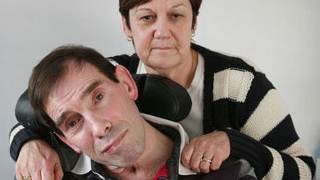Law unchanged by Supreme Court Judgment on end of life cases

The Christian Legal Centre has responded to Wednesday’s (25 June) judgment from the Supreme Court, which rejected the cases brought by Martin, Paul Lamb and the wife of Tony Nicklinson.
The Paul Lamb and Tony Nicklinson appeal was rejected by a majority of seven justices to two, while all nine justices rejected the appeal by Martin.
However, the two dissenting justices in the Paul Lamb and Tony Nicklinson case - Lady Hale and Lord Kerr - said that the prohibition on assisted suicide was incompatible with Article 8 of the European Convention on Human Rights (right to private life).
Five of the nine justices concluded that the Supreme Court had the "constitutional authority" to declare that the current law was in breach of Article 8, but only Lady Hale and Lord Kerr were in favour of making a declaration of incompatibility in today's ruling. The remaining three justices had different views on why such a declaration should not be made now, including the view that it was for Parliament - not the courts - to change the law in this area.
Paul Lamb (58) – who was left paralysed by a car accident – was seeking a change in the law to permit a doctor to take his life without facing murder charges.
He added his case to the legal challenge brought by the wife of ‘locked-in-syndrome’ sufferer, Tony Nicklinson, who died shortly after losing his bid in the High Court in 2012.
Martin (48), who suffered a brainstem stroke in 2008, was seeking permission for a health professional to assist him in travelling to the Dignitas suicide clinic in Switzerland, and wanted the Director of Public Prosecutions to issue further guidelines on whether such an assister would face prosecution.
Andrea Williams of the Christian Legal Centre said: "The fact that the law is unchanged will come as a relief for the many vulnerable people who would have been at risk if the attempt to weaken the law on euthanasia and assisted suicide had been allowed by the Supreme Court.
"The murder law is there to set the highest priority on the importance and value of life and to protect it.
"Those who are suffering deserve compassion and the best care available but killing should never be portrayed as compassionate and we must continue to promote care not killing.
"We have to remember that these cases, together with the many others that have been brought in the past decade are used as part of a campaign to soften public opinion and apply pressure on parliament to legalise euthanasia.
"We must remember that hard cases make bad law.
"Parliament needs to continue to resist the repeated attempts by a small and determined lobby group to legalise assisted suicide. The issue has been comprehensively aired over many years in parliament and bills to introduce it have been resoundingly rejected. Parliament should continue to make clear the paramount importance of the protection and value of life for the most vulnerable in our society.
"This judgment should not be seen as giving permission to parliament to reopen the issue there. The judgment upholds the law protecting life. Parliament time and again has rejected any attempt to weaken the law on assisted suicide."
Care Not Killing's Dr Andrew Fergusson gives his response to today's Supreme Court judgement. Watch here>
